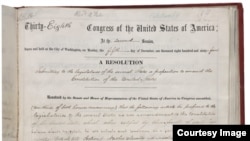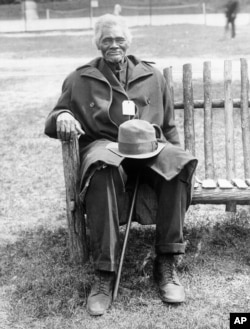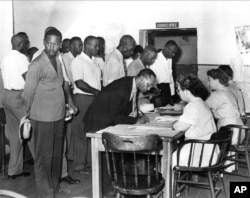One of the most consequential amendments to the United States Constitution is the 13th.
When it passed the House of Representatives on Jan. 31, 1865, it read: “Neither slavery nor involuntary servitude …shall exist within the United States, or any place subject to their jurisdiction.”
And with that, America’s long and brutal history of enslaving black Americans was over.
The U.S. Civil War began in 1861, testing the very heart of America: its unity. The goal, as stated by then-President Abraham Lincoln was the restoration of the Union.
But early in the war, the Union began keeping escaped slaves rather than returning them to their owners, so slavery essentially ended wherever the Union army was victorious.
In 1862, Lincoln issued a preliminary version of the Emancipation Proclamation, freeing all slaves in areas that were rebelling against the Confederate South.
The 13th Amendment was not the first attempt to eradicate slavery. In 1864, an anti-slavery amendment passed the U.S. Senate, but died in the House of Representatives as Democrats rallied in the name of states’ rights.
The election of 1864 brought Lincoln - a Republican - back to the White House, along with notable Republican majorities in both houses of Congress. It seemed as though the amendment was headed for passage when the new Congress opened in early 1865.
Some Democrats indicated support for the amendment, but many others resisted.
The 13th amendment passed 119 to 56, seven votes above the necessary two-thirds majority. In December, states ratified the 13th Amendment.
Despite the official end of slavery, it wasn’t until the passage of the Civil Rights Act of 1964 that black Americans were considered equal under the law.









